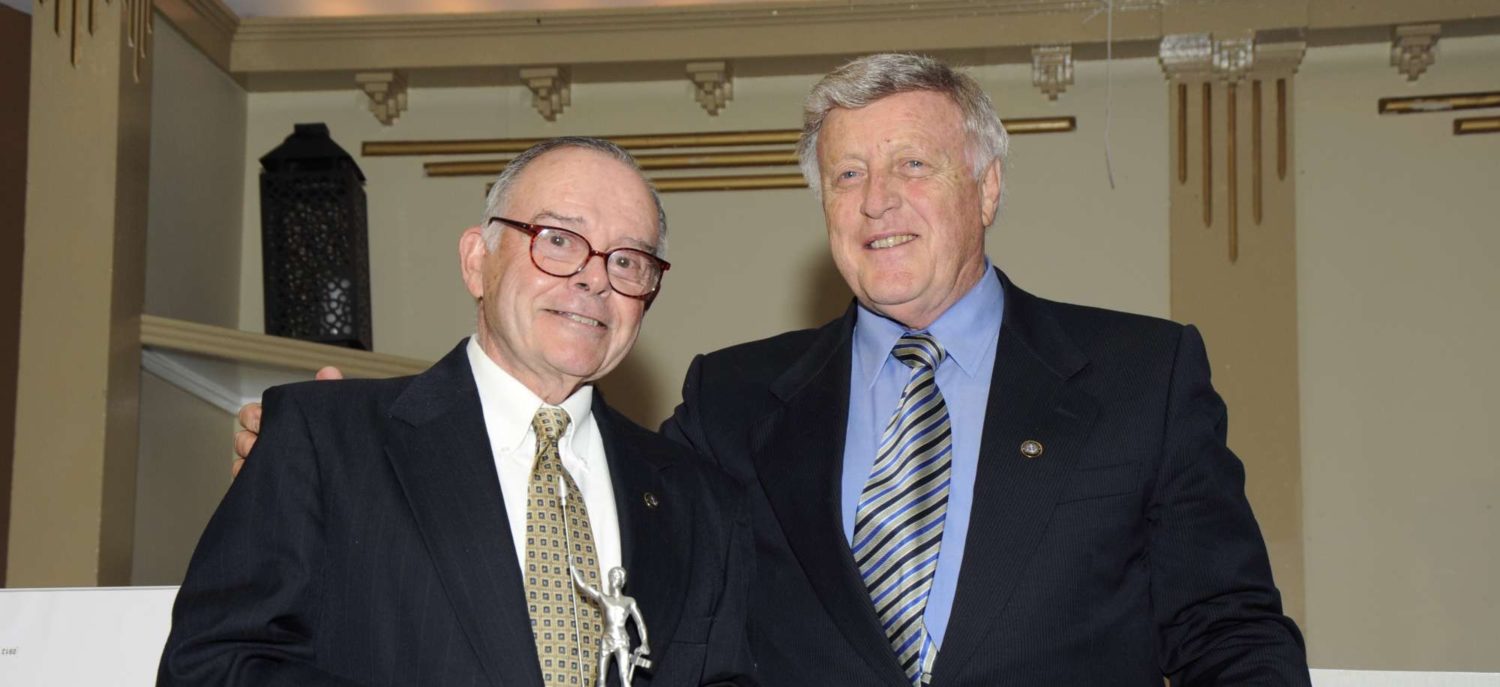[From the Editor: Albert T. (“Al”) Klyberg, former executive director of the Rhode Island Historical Society, passed away on Tuesday, January 10, 2017, at the age of 76. A tireless worker for countless Rhode island history projects, Al’s great goal was the creation of a state history museum, which he doggedly pursued for many years despite great obstacles. While he did not succeed at that lofty goal, he has left an enduring legacy in the Heritage Harbor Foundation, as his friend and current president of the Foundation, Patrick T. Conley, writes below. Paul Campbell, former Archivist of the City of Providence, wrote of Al that his historic preservation efforts saved from destruction the Cranston Street Armory, The Shepherd Company Department Store, and the Narragansett Electric plant at which the museum was to have been built. Campbell said, “I’ll always remember him as a kind, inclusive man who saw the value in all opinions.” The current executive director of the Rhode Island Historical Society, Morgan Grefe, wrote, “For nearly three decades Al steered the Rhode Island Historical Society. Under his leadership, we grew to include the RIHS Robinson Research Center, the Aldrich House, and his treasure, the Museum of Work & Culture… . He had a beautiful vision of the role that history should play in our lives . . . .” He will be sorely missed.]
Albert T. Klyberg of Lincoln passed away suddenly and quietly in the early morning hours of January 10, less than twelve hours after he had met with me and Heritage Harbor Foundation treasurer Tony Marandola to arrange for the presentation of $137,000 in grant money from the Foundation to nine local non-profit organizations dedicated to the promotion of Rhode Island history and culture. How ironic that he lived just long enough to see the first fruits of his 35-year crusade to bring the story of Rhode Island’s heritage to the people of his adopted state via a foundation that he was the leader in creating.
Al, a native of New Jersey, came to Rhode Island in 1968 after completing his doctoral courses at the University of Michigan. His purpose was to assume the directorship of the staid Rhode Island Historical Society—a position he held with distinction for three decades.
Upon arrival, Al immediately recognized a deficit in the Ocean State’s history. That gap was the neglect of post-Civil War Rhode Island history. This oversight left out the stories of eighty percent of today’s state population.
To rectify those gaps in the historical record, Klyberg led the Historical Society’s effort to microfilm all of the state’s newspapers down to present time, and he began a television news film archive.
The Rhode Island Bicentennial Commission (on which Al was a prominent member) created eighteen ethnic heritage subcommittees that opened opportunities for Klyberg’s Rhode Island Historical Society to expand its mission and its activities. To accomplish this task, Al lobbied to increase the state appropriation to the Society from $10,000 annually to over $400,000 with the backing of Speaker Matt Smith and Senator Robert J. McKenna, both devotees of Rhode Island’s history.
Al’s simultaneous leadership in the Society’s production of the thirteen-volume The Papers of General Nathanael Greene and the two-volume edition of The Correspondence of Roger Williams proved that he did not neglect the earlier period of Rhode Island history.
While offering courses on museum studies and the history of Rhode Island at the University of Rhode Island, Rhode Island College, Providence College, and Bryant University, Al went through several phases in his attempt to define clearly the field of Rhode Island history.
He believed that “inclusiveness” should be the hallmark of such a project. He suggested that Rhode Island history can be best understood within “Six Big Ideas,” which he identified and described with both imagination and great insight. Under the rubric of these six themes, Klyberg devised 240 topics for analysis and further study.
For his efforts Al won many honors. In 1981, he received a presidential appointment to the National Museum Services Board, and in 1986 gained a Doctor of Humane Letters degree from Rhode Island College. He was an incorporator of the Rhode Island Black Heritage Society, the managing developer of the highly-successful Museum of Work and Culture in Woonsocket, the author of several influential booklets and articles about Rhode Island, and a board member of numerous historical organizations.
Although Al’s dream of a state historical museum in the former South Street Station of the Narragansett Electric Company was dashed by the economic impact of the Great Recession and an ill-advised revision of the state historic tax credit program, the money generated by that project has resulted in the creation of a Heritage Harbor Foundation with an endowment of $3.6 million dollars. The interest on this fund generates over $161,000 annually in grants for historical and heritage projects throughout Rhode Island that will elaborate upon his “Six Big Ideas.” This foundation is Al’s greatest legacy to his adopted state.
Throughout the course of Al’s historical odyssey, the steadfast support and affection of his wife, Beverly, and children, Kimberly and Kevin, a National Park Ranger, provided an essential home life balance for a career dedicated to promoting civic engagement and knowledge based on local history.
For nearly a half-century Al Klyberg illuminated Rhode Island’s past for our citizens to view it—many for the first time. No one ever equaled his dedication and persistence in performing that labor of love. Through the lens of his Heritage Harbor Foundation Al’s light will continue to shine.
[Banner image: Al Klyberg, with Patrick T. Conley, at Al’s induction into the Rhode Island Heritage Hall of Fame in 2014]

























